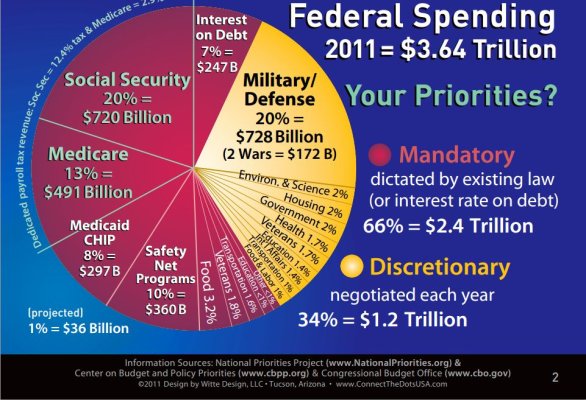Midpack
Give me a museum and I'll fill it. (Picasso) Give me a forum ...
Isn't the average wealth what we'd all have if total wealth was redistributed equally among everyone? That number is published all the time Wealthiest Americans have 288 times net worth of typical family - Sep. 11, 2012If all wealth could be redistributed in the US how much would that make for each of us? I am not sure how to figure it. GDP/Population?
Last edited:

